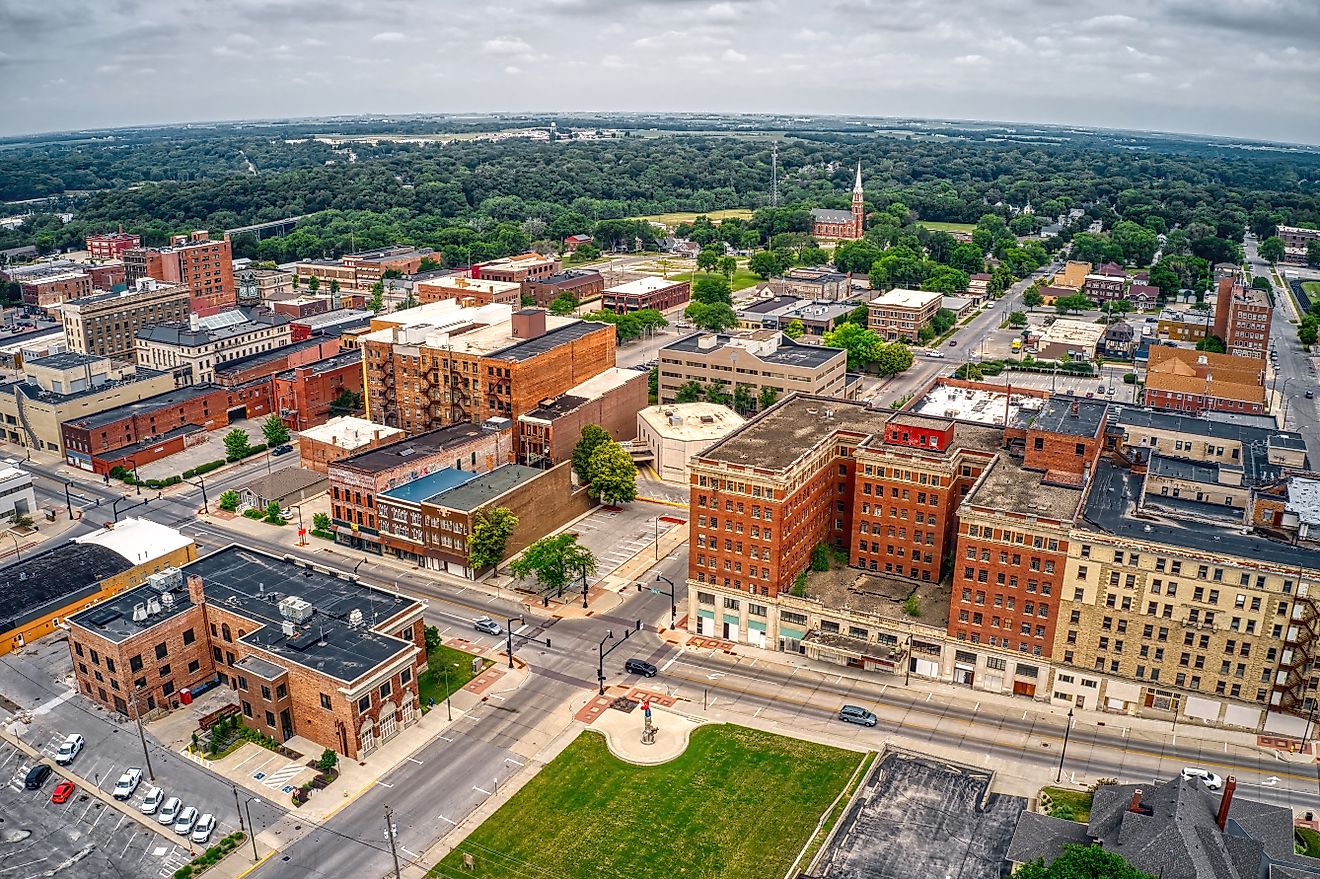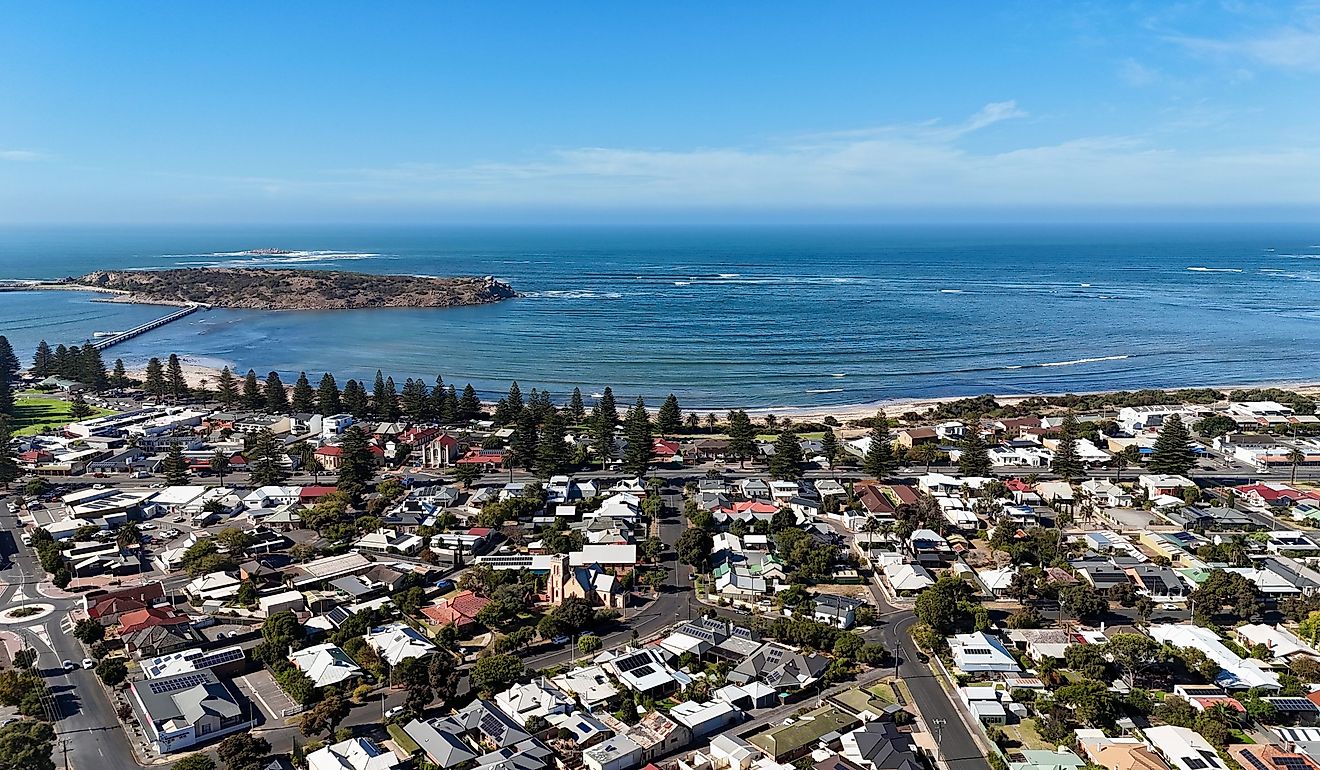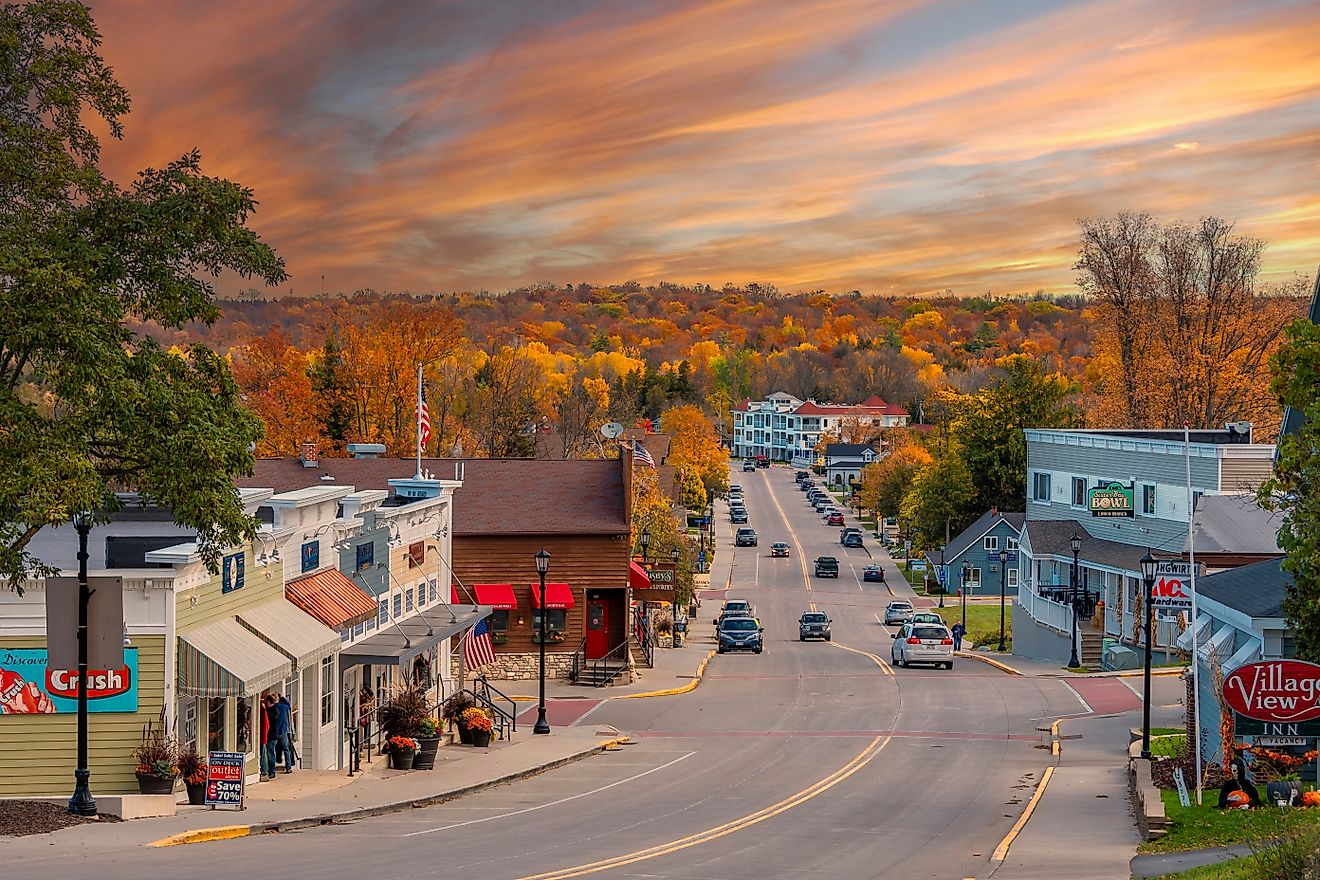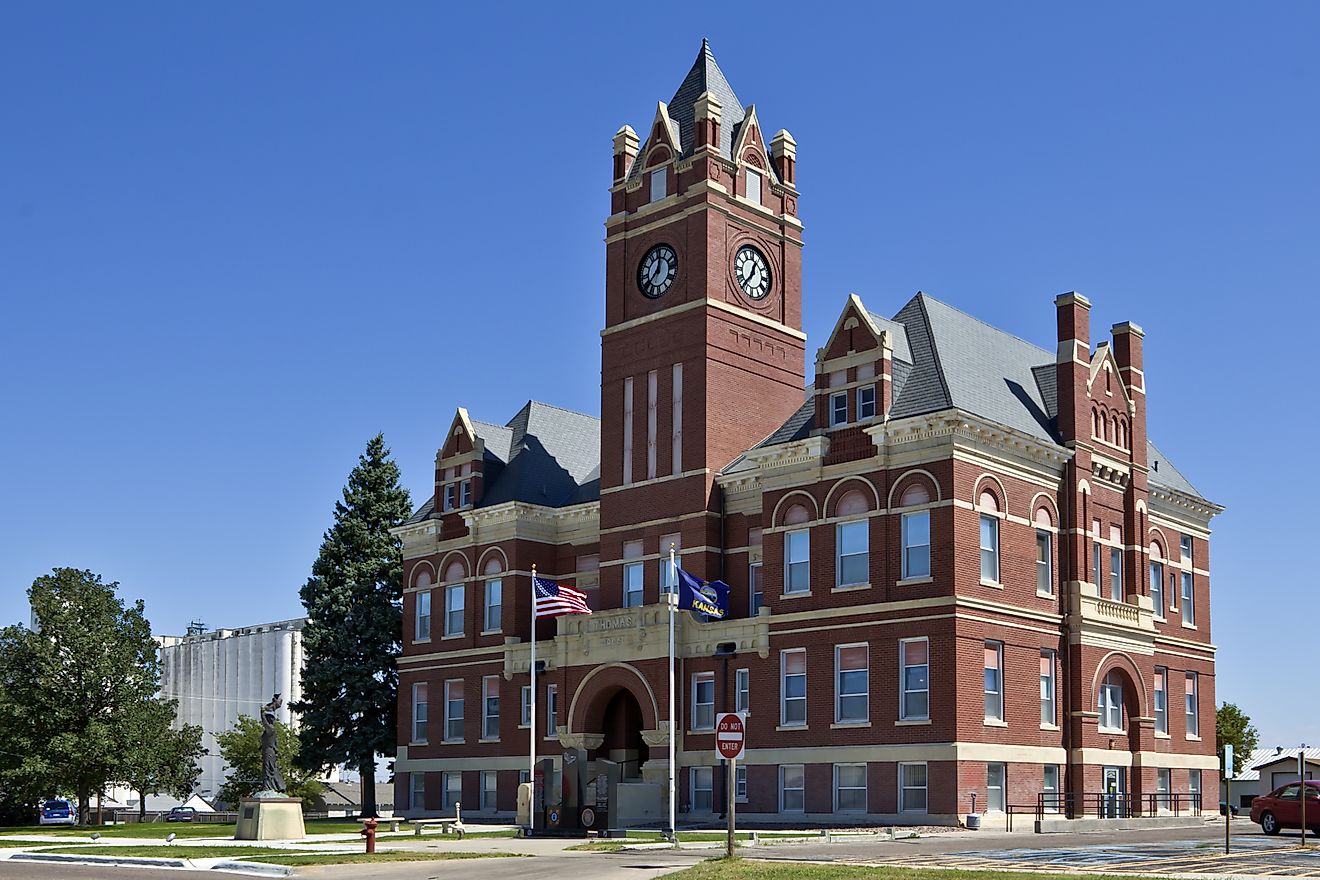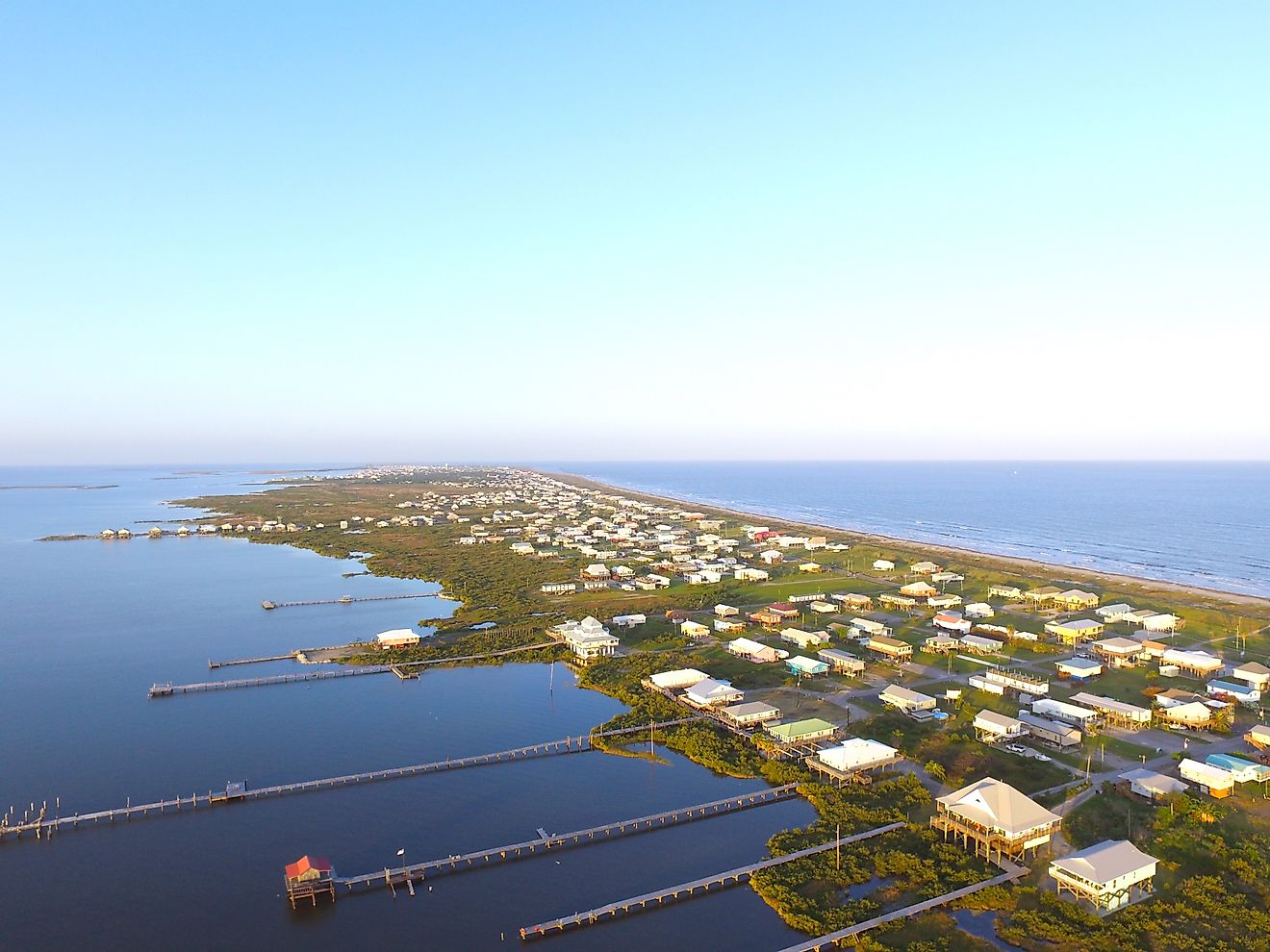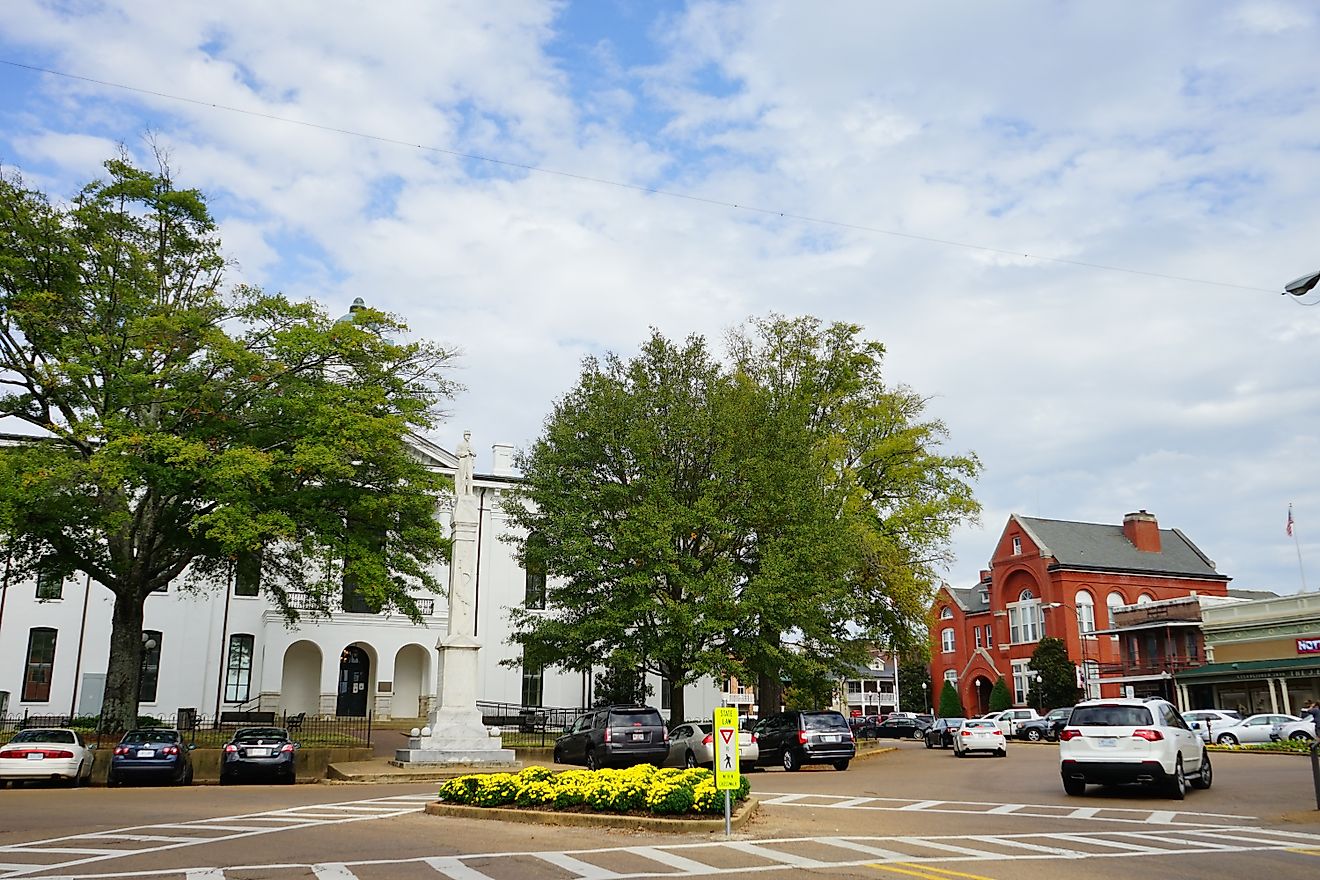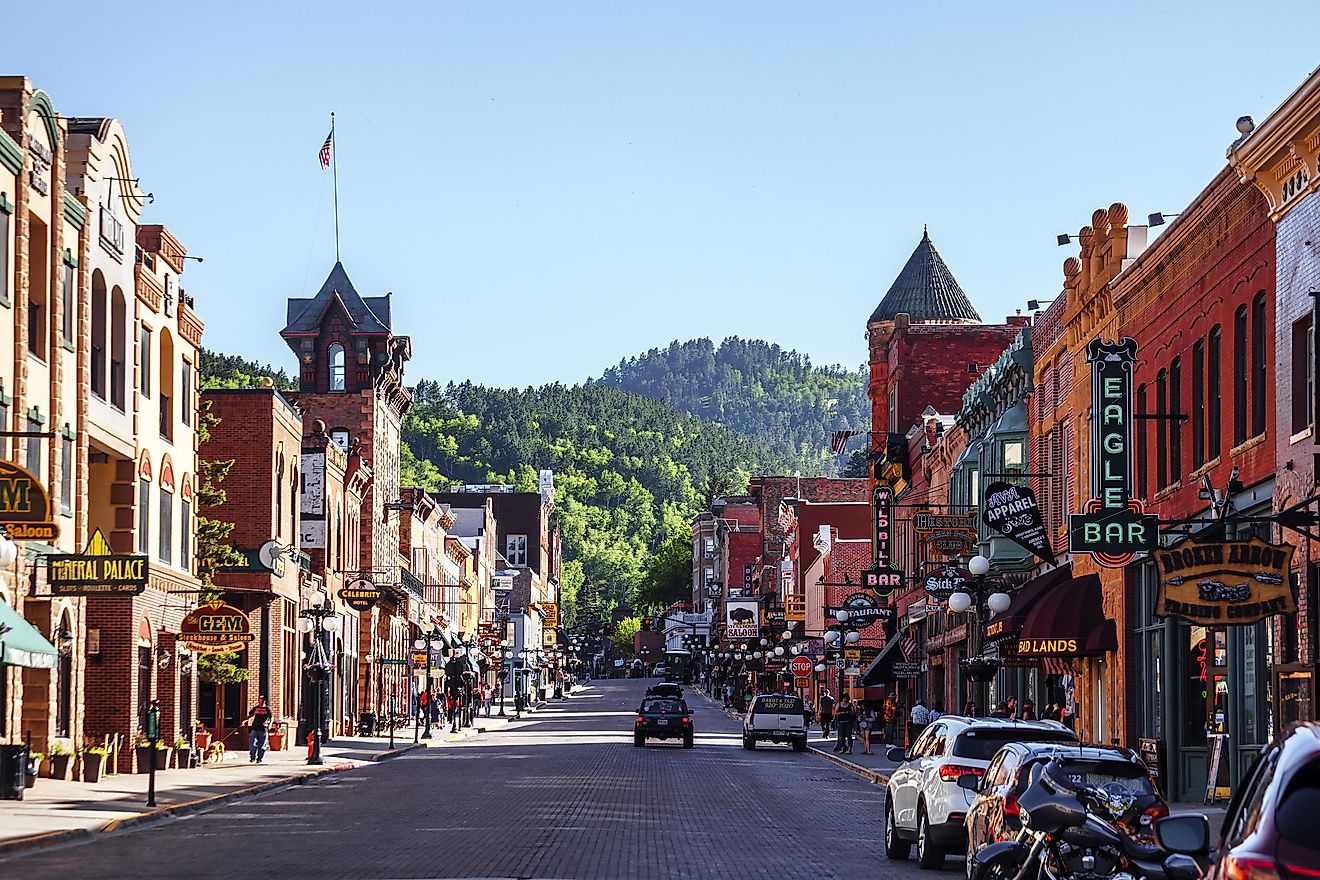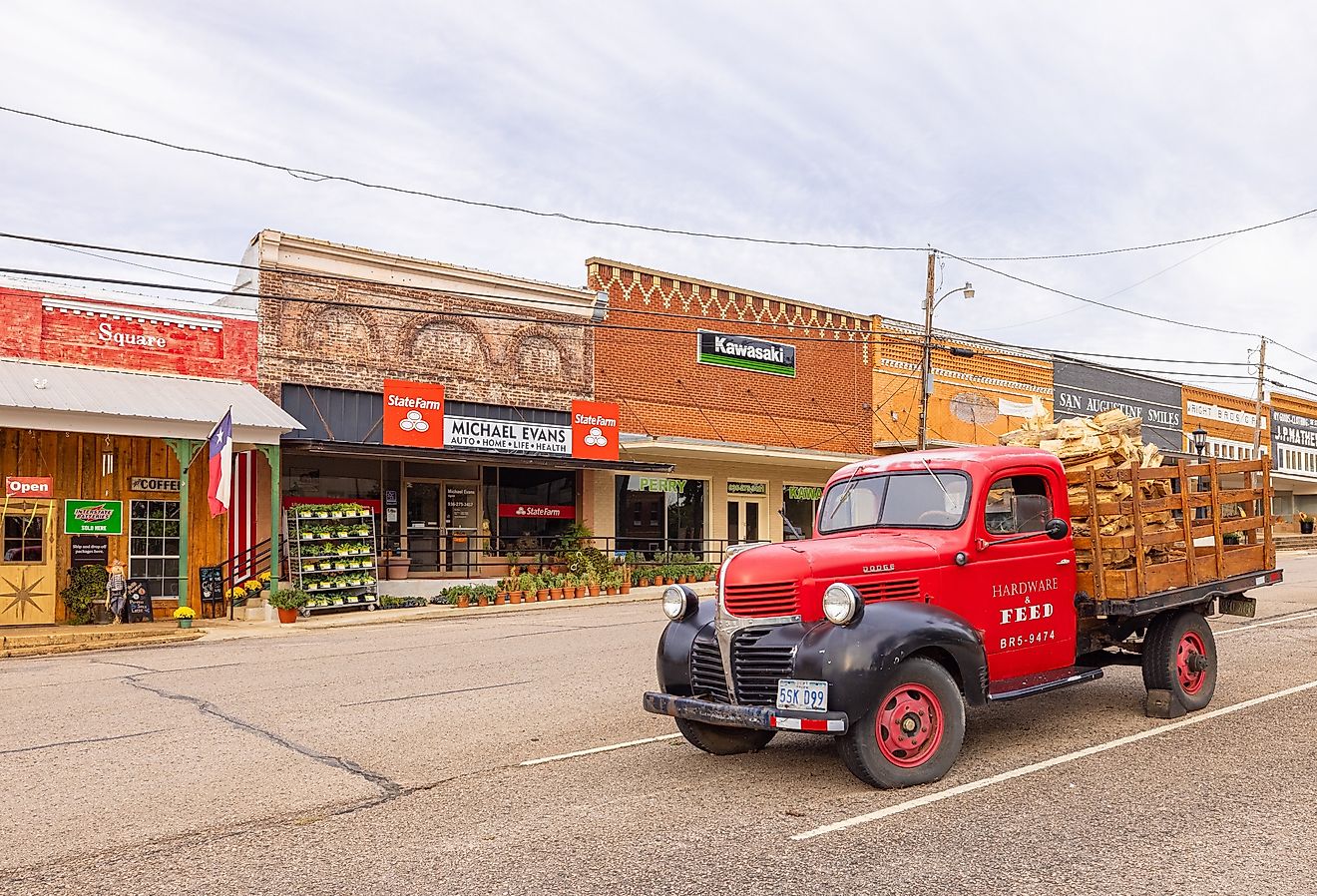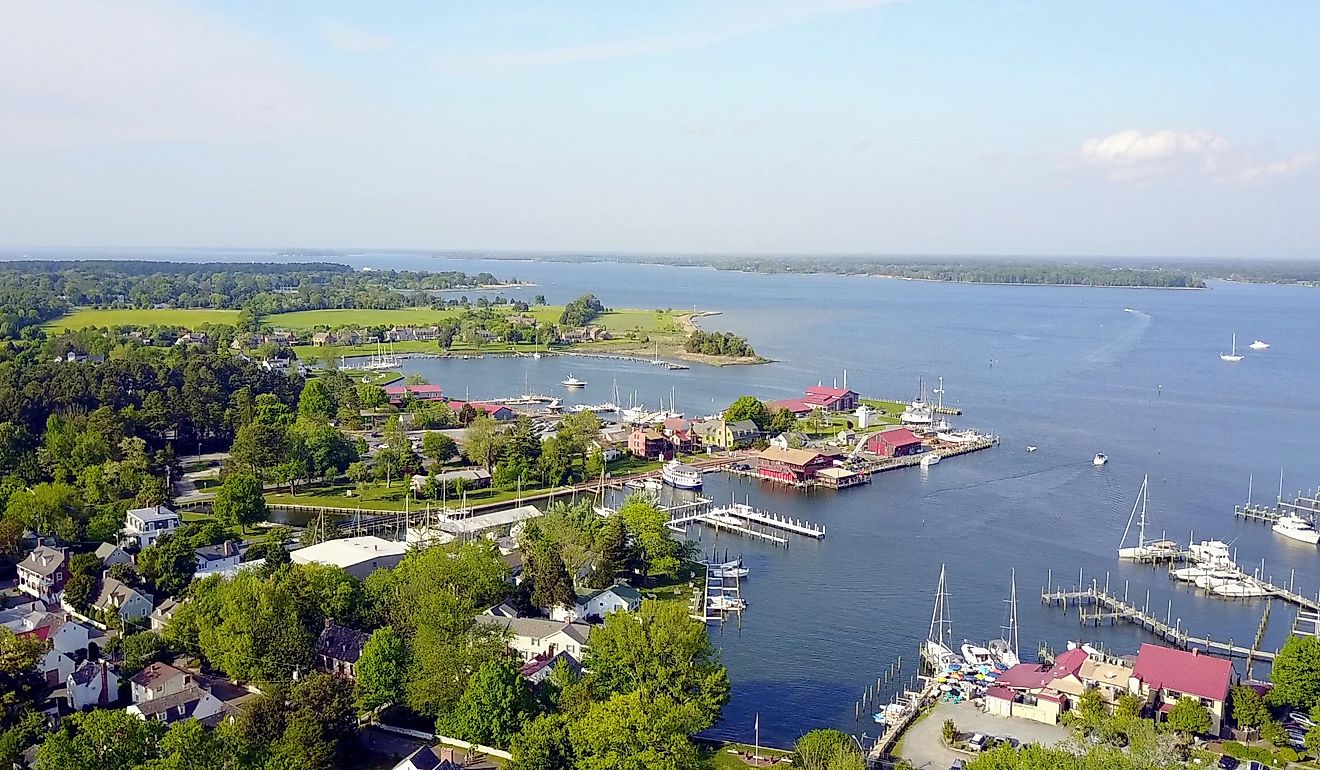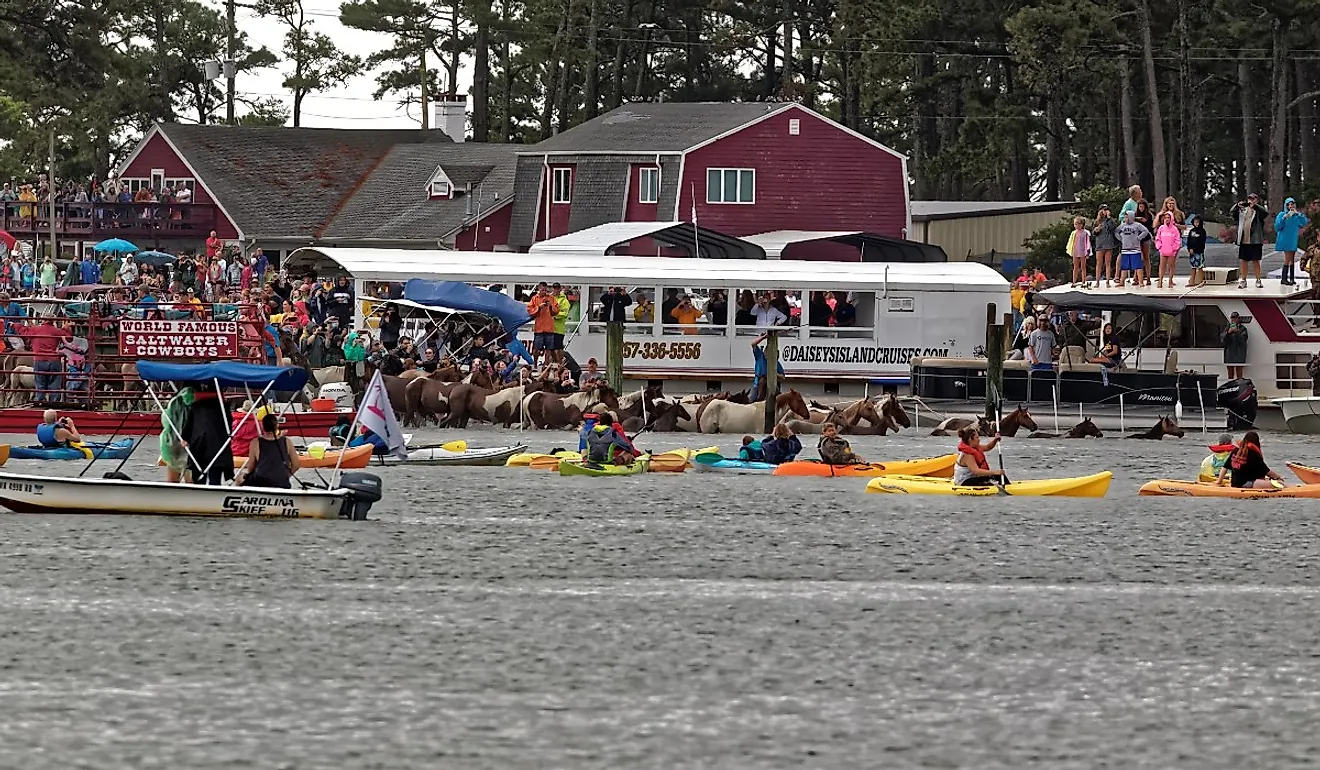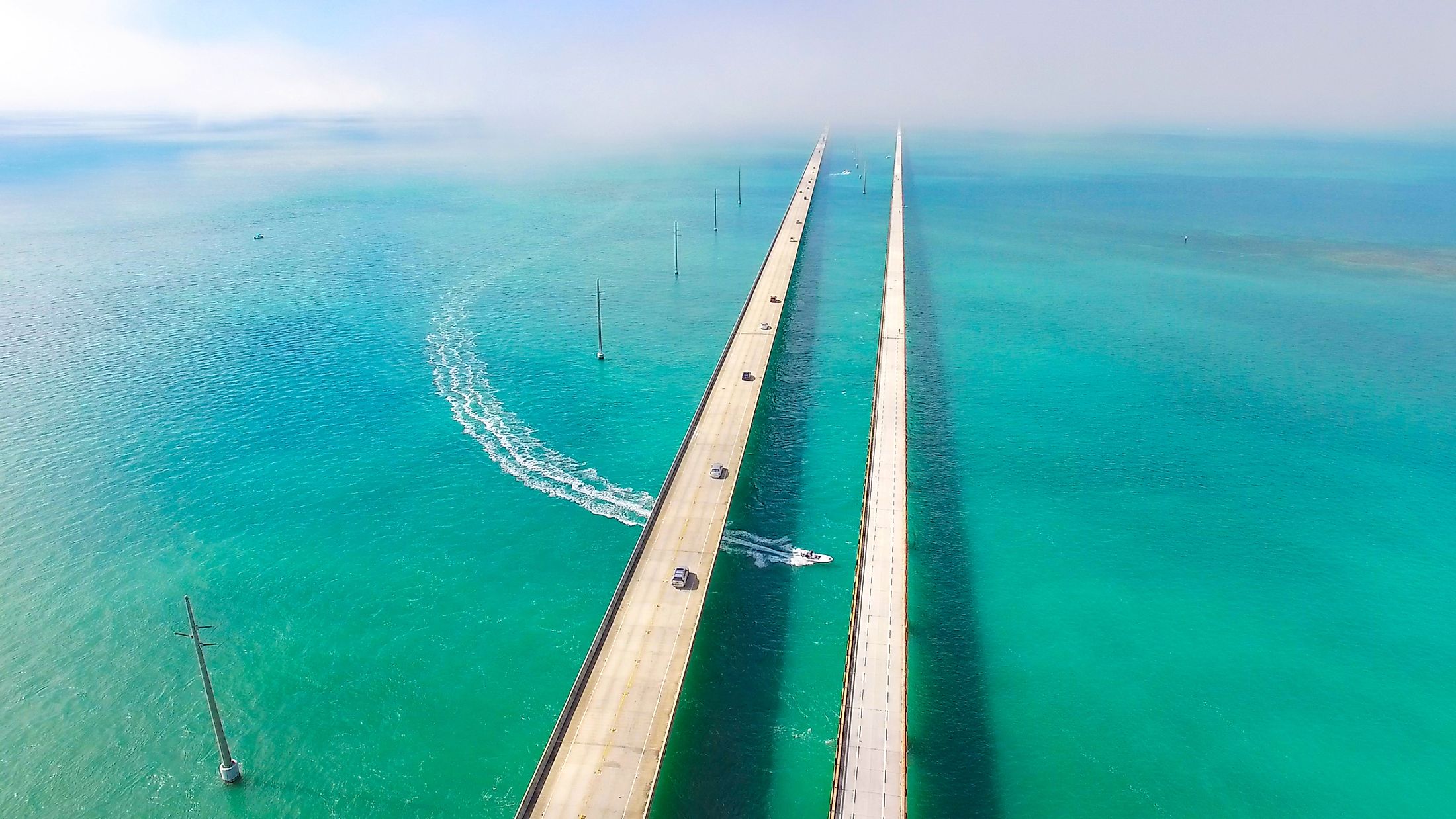
Top 10 Most Famous Bridges In The United States
Bridges are remarkable structures in that they can be designed in almost any style to fulfill their requirements while also having certain meaning. With bridges often praised most for their span, the ones on this list are some of the most gorgeous bridges in United States, offering breathtaking views and breezy rides, as well.
Bixby Creek Bridge - California
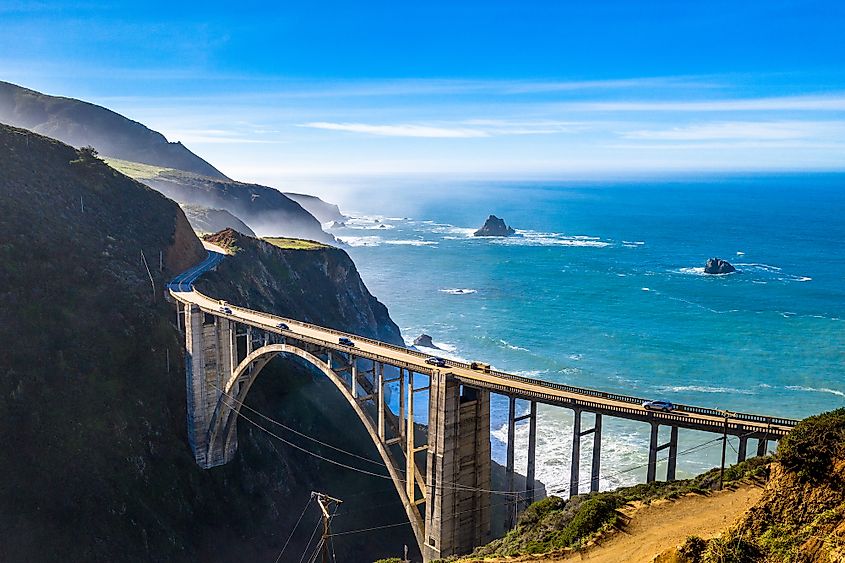
The Death Cab for Cutie song, "Narrow Stairs" is inspired by the beauty of this breathtaking open-spandrel arch bridge along the California coast that the locals refer to as the gateway to the Big Sur. Constructed in a California entertainment-industry style to be opened in 1932 as the longest concrete span on the California State Highway System, this graceful architecture, is, perhaps the most photographed bridge in the United States. It also helps that it is set to scenically soar the backdrop of the Big Sur coastline. It cost over $20 million to build the bridge, including a primary false bridge using 300,000 board feet of timber, followed by 600,000 pounds of steel and 6,600 cubic yards of cement for the real, 714 feet long and 218 feet tall majestic overpass.
The bridge was named after Charles H. Bixby, a New Yorker in love with the California coast, who purchased 160 acres in 1889 south of Bixby Creek to maintain land and install a railroad. Although the idea for the concrete arch bridge was conceived in 1919, the construction only begun upon the approval of the state of California of the need for Route 56 to open up transportation options for residents in Big Sur. The bridge adds to the already unforgettable drive from San Francisco to Big Sur in a hug of the west coast along a stretch of California's natural, unadulterated condition, land, protected by Big Sur Land Trust.
Brooklyn Bridge - New York City, New York
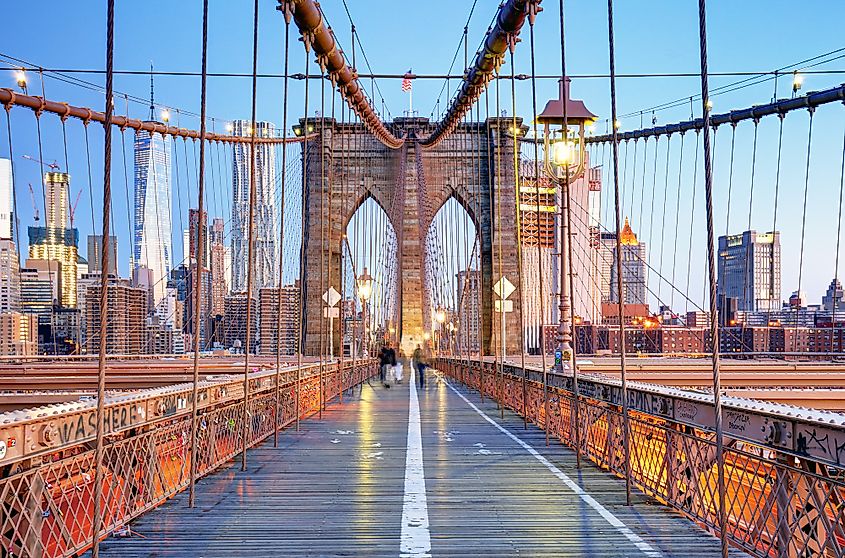
This New York City Landmark, a National Historic Landmark, opened in 1882 as the first and longest steel-wire suspension bridge in the world at the time. It spans the East River in New York City for 1,595 feet and reaches 276.5 feet into the sky. The toll-free spectacle of the New York City that it provides mesmerizes many, especially at sunset, from the six lanes of traffic for cars and a pedestrian walkaway. John A. Roebling imagined and engineered the bridge. He was also one of the 27 men to die during its construction. The bridge is currently held up by 5,296 galvanized steel wires wrapped into four gigantic cables.
The construction of the Brooklyn Bridge started in 1870. It was built to connect Brooklyn with Manhattan to help the Brooklyn residents who worked across the East River in Manhattan to get to their jobs more conveniently than via ferry, a trip that was nearly impossible during the freeze-over in winter. Some 150,000 pedestrians and 2,000 cars crossed the bridge on the opening day in 1883, even though there were major rumors, with many believing that the bridge would not be strong enough to handle daily traffic. With concerns still persisting, 21 elephants walked over the bridge on May 17, 1884, as a gesture by P.T. Barnum to prove them wrong.
George Washington Bridge - Fort Lee, New Jersey
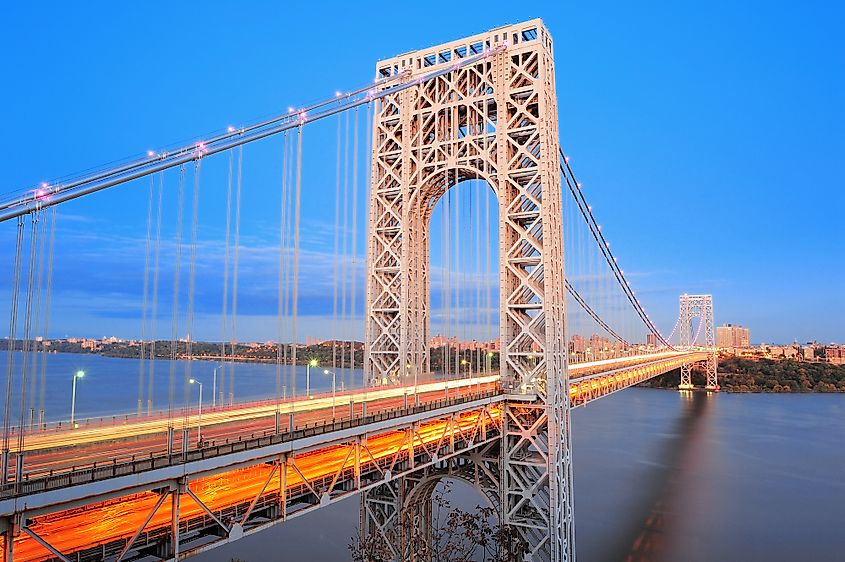
Spanning the Hudson River to connect New Jersey and the borough of Manhattan, the George Washington Bridge is a must-see landmark when in the state. It was opened in 1931. At that time, it was only a one-level bridge and was transformed into a two-level one during the development period of the interstate system in 1963, also becoming part of the Interstate 95 that connects the states of Florida and Maine. Once offering the views of the World Trade Center over the Manhattan skyline to the east and the south, one can now only see the lonely Empire State Building from it today. It is one of the most memorable and memory-bringing bridges in the United StatesU.S., reminding one of the great tragedy, by featuring the world's largest free-flying American flag of 90 feet by 60 feet in dimensions to honor the 9/11 victims.
Golden Gate Bridge - San Francisco, California
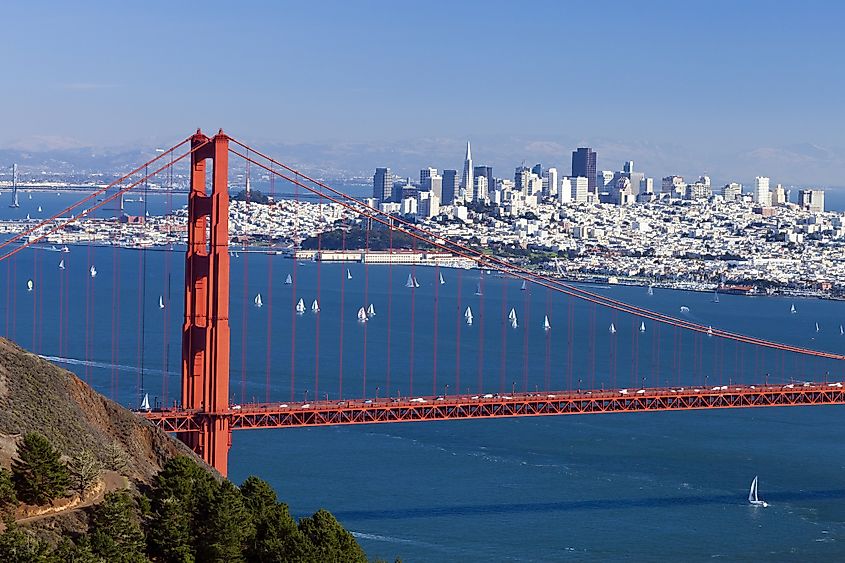
The Golden Gate Bridge is not only famous in the United States, but iconic to the world as well, in its grand stature of the golden gates beautifully spreading across the waters in the form of 746 feet tall towers. The bridge connects San Francisco to its northern Marin County neighbors across the Golden Gate Strait. The dramatically sweeping main cables, the Art Deco style, and the fiery color attract over 10 million people to pay to visit the bridge each year, which is okay, having been designed especially for tourists and equipped with the new Bridge Plaza along the southeast end.
Opened on May 27, 1937, the bridge spans 4,200 feet across its namesake Golden Gate Strait. Its actual cost of $35 million was twice Joseph Strauss' (the bridge's engineer's) estimation of $17 million, but much cheaper than the San Francisco's engineers' quote of being $100 million. Although toll-free, there are specific times designated to walking the bridge or riding one's bike across it during the daylight hours. Depending on the amount of rainy storms in a year, it takes anywhere from 5,000 to 10,000 gallons of paint for the annual upkeep of the bridge in its International Orange color.
Lake Pontchartrain Causeway - New Orleans, Louisiana
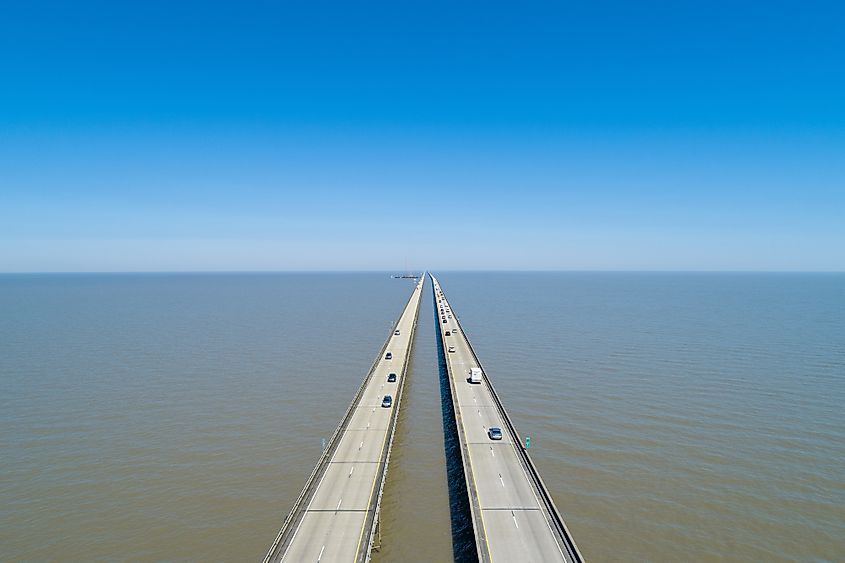
Stretching over Lake Pontchartrain in New Orleans as one of the longest bridges in the world in a four-lane Causeway Boulevard, it is comprised of two separate bridges, with the longer one running for 23.83 miles and connecting Metairie in the south and Mandeville in the north. Conceived in 1955 and initiated by the Louisiana Bridge Company to be finished in 1969, it was classified as the longest over-water causeway in the world; only to be beat by a new Chinese bridge recently, in 2011.
During the construction, a first-ever practice of assembly line in bridge-building was employed, with the project commencing from the manufacturing plant near the northern end of Lake Pontchartrain, where all concrete parts were poured, cured, and assembled. The bridge is also made of parts that are pre-pressed concrete that result in a stronger finished piece, needed to reinforce Louisiana's soft soils while driving vertical support poles far into the ground. As work progressed, barges were used to carry segments over the open water to be installed, all-in-all costing 30 million dollars to complete, in an effort to support the prospected traffic that would want to get from North Shore communities to New Orleans in 30 minutes less than before.
Mackinac Bridge - Mackinaw City, Michigan
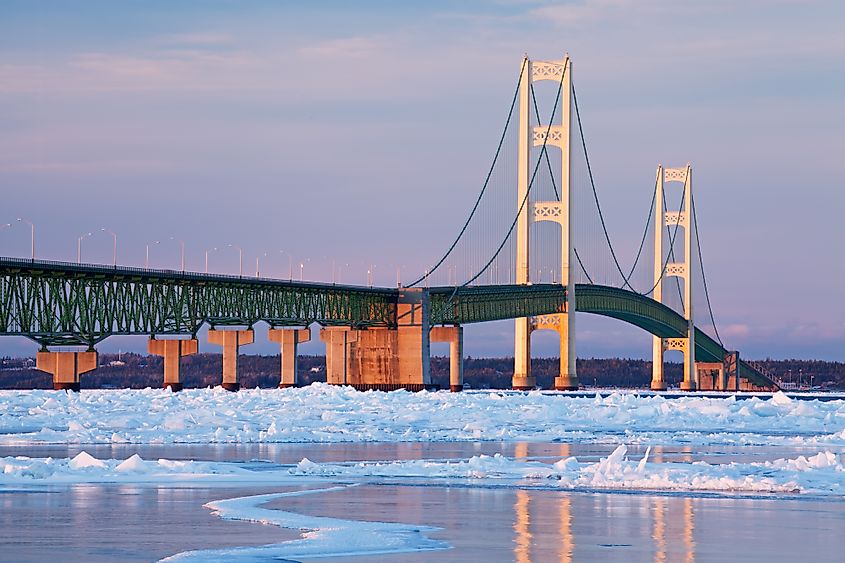
With the idea conceived in the 1880s, it was not until 1957 that, this, 26,372-foot long bridge spanning the Upper and Lower Peninsulas of Michigan was ready for traversing. Its beauty somewhat justifies the length of time it took to construct, matching the majesty of the two Grand Lakes lying below it, Lake Michigan and Lake Huron, and it is also part of the Great Lakes Circle Tours. Pronounced without the "k" at the end, just like the city it sits in, and featuring four lanes of I-75, it is affectionately called, the Mighty Mac or the Big Mac. As the third longest bridge in the United States and 15th in the world, it is also quite broad, with the main span of 3,799 feet.
New River Gorge Bridge - Fayetteville, West Virginia
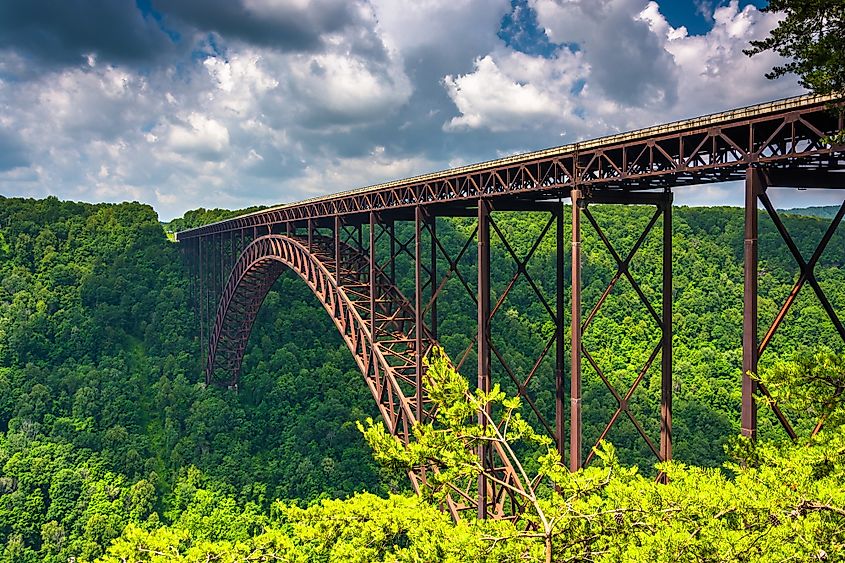
The construction of this bridge, finished in 1977, was designed to solve a serious travel problem turning a 40-minute drive on a narrow mountain road along the swampy banks of an old river into a 1-minute trip across it. At 3,030 feet and 6 inches, it makes for the longest steel bridge in the western hemisphere and the fourth-longest in the world, set in an exceptionally scenic spot of the region, which attracts countless tourists on the yearly basis just to take a memorable picture in such a lovely location of West Virginia.
The Bridge Day on the third Saturday every October brings stalls of crafts and food to the bridge, where visitors can also enjoy live music and more with the scenery of the Appalachian Mountains. For the extreme sports fanatics, there is also BASE jumping and rappelling available off of the bridge. Arching gracefully over a river, the New River Gorge Bridge is such a source of pride for West Virginia that the state commemorates the bridge on the coin of its own state quarter.
Seven Mile Bridge - Florida Keys, Florida
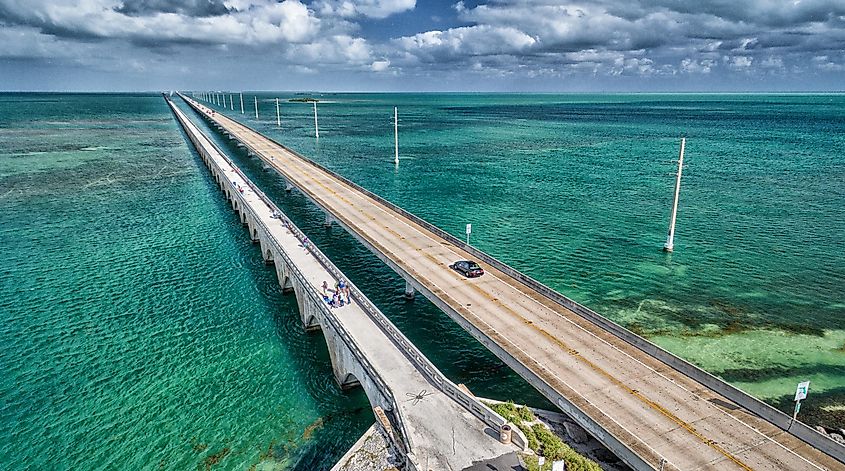
One of the most iconic bridges in the U.S. for its 10.89 km span was completed in a mere three years, from 1909 to 1912, although the motorists could only start riding it seventy years later, in 1982. Connecting the Knight's Key in the Middle Keys with the Little Duck Key, part of the Lower Keys in Monroe County, it is equipped with only two lanes for U.S. 1. Built to appear slick and streamlined in design, it can still accommodate cyclists.
The benefits collected on this bridge from the participants and the observers of the yearly Seven Mile Bridge Run go straight to the youth activities in the city of Marathon, in Florida. Much of the public that traverses the bridge consists of tourists desiring to visit the Conch Republic, a micro-nation conceived 40 years ago in response to the U.S. Border Patrol Blockade of the Florida Keys, that see themselves as a community with a "Sovereign State Of Mind." Although the bridge has been reinforced, the original is still intact but disintegrating, and is mainly used as a fishing pier.
Sunshine Skyway Bridge - Tampa, Florida
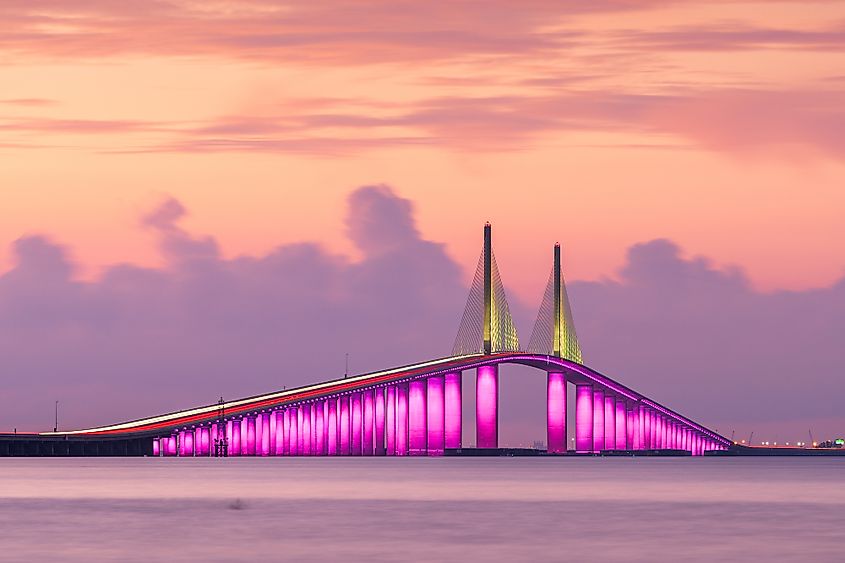
Prompted by the tragedy that sent pedestrians, cars, and even a bus into the waters below, when the Summit Venture freighter crashed into the pylons, killing 35 people on the stormy May 9 in 1980, the bridge's billowing sails from a far-off perspective now offer a longing view. The stylistics of the bridge were suggested by the former Florida Governor and U.S. Senator, Bob Graham, who was inspired by a similarly-designed bridge in France, the Brotonne Bridge, and wanted to see something alike every day from home.
Also known by the long name of the Bob Graham Sunshine Skyway Bridge, it is a cable-stayed bridge of 4.1 miles long, crossing Florida's Tampa Bay, with the U.S. 19 and I-275 highway running across it. Thus connecting the Terra Ceia within Manatee County with St. Petersburg in Pinellas County, it is successfully carrying out the job of the prior bridge, with its construction taking place from 1982 to 1987. Also equipped with pedestrian and bike lanes, the strong bridge provides gorgeous views for all kinds of trespassers.
The Chesapeake Bridge Maryland - Maryland
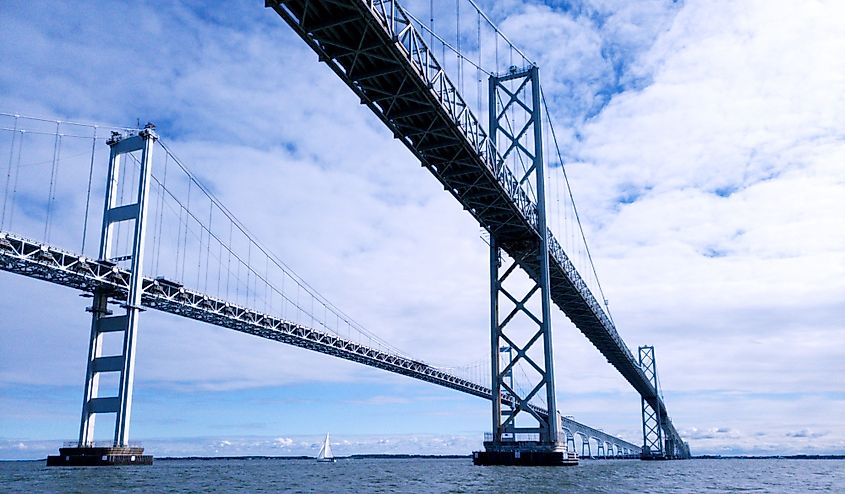
The Chesapeake Bridge is also referred to as the Bay Bridge for crossing the Chesapeake Bay. It is also called the William Preston Lane Jr. Memorial Bridge, lovingly dedicated to the Maryland governor at the time. It is a two-lane bridge in each direction and one reversible lane, meant solely for cars to ride the US 50 and US 301. It is only open to pedestrians on the first Sunday of May, for the Governor's Bay Bridge Run and the Bay Bridge Walk when anyone can experience the bridge design close-up and enjoy the views of the bay it offers over the rails.
When it first opened in 1952, its length made it the longest steel structure in the world at the time that ran continuously over water, at 4.3-miles. Holding the eastern and western Maryland shores together, the bridge was actually expanded in the 1973 construction of its westbound span. Only 186 feet at its highest point, the violent thunderstorms common to the region make it nearly impossible to see the land when driving on top of the bridge, making this arch one of the scariest bridges according to some residents and those with gephyrophobia, or the fear of bridges.
Although serving the same purpose, each of these bridges has a unique history, with a specific point of conception or in commemoration of someone or something. These bridges are famous for holding two separate pieces of land together, making it accessible for residents of the region to travel in a breeze, in a stylistic design, as well as within some of the best scenery of the country.
